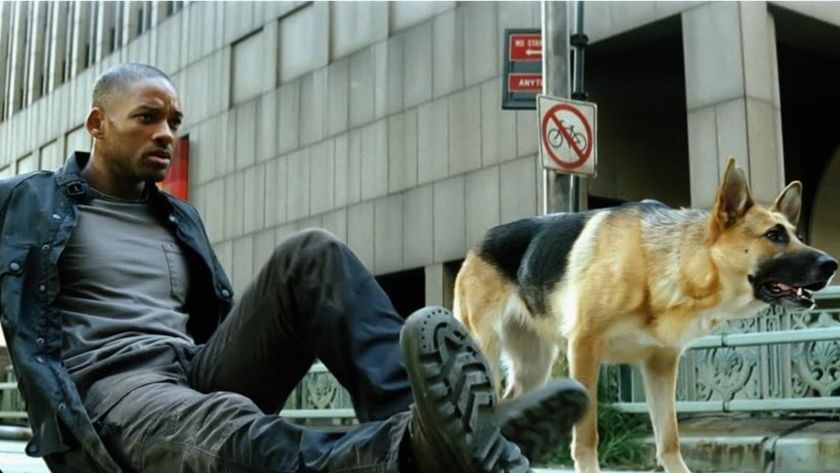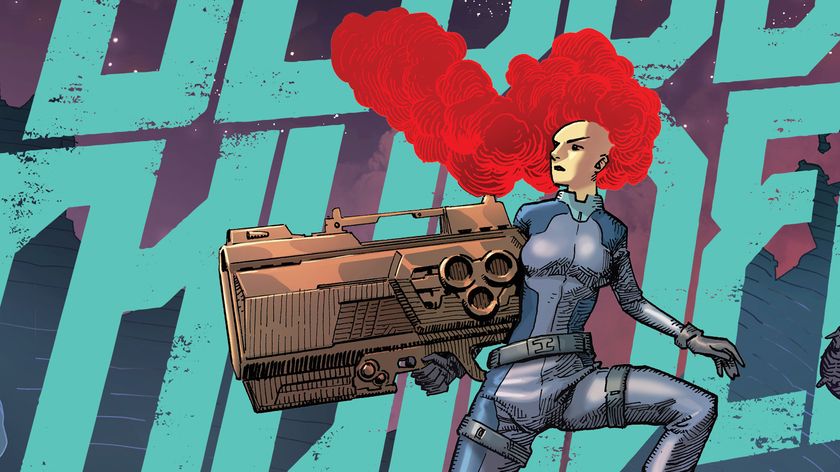Why you can trust 12DOVE
Only minutes in, it's clear that Master And Commander is 20,000 leagues away from your usual event-movie bilge. In fact, it immediately feels more like a reconstruction for a historical documentary. There's no surging orchestral fanfare to introduce this `blockbuster'; no scroll of credits. Just the slap of seawater on caulked timber, the creaking of rigging and the clomp of boots on decks as the sun rises on the 19th century and the crew of HMS Surprise set about their daily tasks.
If this beautifully framed setting wasn't so embracing, your appreciation of the near-microscopic attention to detail - from the names etched on the cannons to the casual barking of maritime jargon - would prove distracting. Of course, director Peter Weir's too astute a filmmaker to allow his self-confessed obsession with period accuracy become overly indulgent. Neither does he wallow in his docu-style opening. As the ghostly Acheron cuts through the fog and launches its first vicious assault on the Surprise, sending limb-lacerating splinters flying and men (and boys) to writhe under the surgeon's knife, Weir reveals a previously unseen talent for handling big-scale action. After all, even World War One movie Gallipoli was more about people than battles.
That said, Weir was never going to reduce his adaptation of Patrick O'Brian's first and 10th Aubrey novels into an orgy of briny set-pieces or nautical action clichés. Here, the violence is sporadic and brutal. The swordplay is swift and all close-quarter scuffling, rather than choreographed blade-clashes. And, sticking with the laws of physics, the cannonballs fracture rather than explode with a pyrotechnic flourish.
The emphasis in Master And Commander is on tension rather than action, on the threat rather than the fight, on psychology rather than physicality. A man-o'-war is a cramped home to almost 200 men, who must work together as a single, battle-faring organism if they're to survive. But when their captain's forcing them through dangerous, stormy waters on the tail of a ship that some call "The Phantom", inter-crew relationships are bound to creak. So as the Surprise pursues its quarry, the plot unfolds in an episodic manner, presenting a patchwork of mini-dramas: the underconfident lieutenant, the 13-year-old midshipman who's violently coming of age, the bitter carpenter's mate who loses his best friend... Yet the focus, unsurprisingly, is on Captain "Lucky" Jack and his friend, Dr Stephen Maturin (Paul Bettany), the ship's surgeon. Both Crowe and Bettany are perfectly cast and their portrayal of a companionship between two different men is utterly convincing.
Crowe's Aubrey may not be as bloated and as blond as the O'Brian fans would have liked, but there's no doubting he's nailed the character: a brilliant tactician who commands respect and realises the need for strict discipline, while also being a humourous man nagged by a sharp awareness of his limitations. The actor reveals Aubrey's every layer with the sensitivity you'd expect of an Oscar-winner, exhibiting a charisma that's magnetic.
In terms of the 2004 Oscars, though, Total Film's doubloons are on Bettany. As well as being Aubrey's best mate, the resident lifesaver and a keen man of science, Maturin is also a hand-holder for the audience (asking his military peers to explain things in layman's terms) and, most importantly, the ship's "one rebel" as Jack puts it, quick to criticise his friend's actions and attitudes. Bettany pulls this off while building up the audience's sympathy for both Maturin and Jack; his transparent (platonic) love for the captain rubs off on you. Come the final act, you'll be chewing your cuticles for fear of them entering Davy Jones' locker.
Master And Commander isn't flawless, though. The pace does slip a few times - - especially during an overlong interlude on the Galapagos Islands - - while other segments, by contrast, feel rather too clipped. And you can't help wishing for a flashback or two to illustrate some of the characters' history.
Still, it's otherwise well-rounded and well-balanced, doling out generous rations of distress, humour and adrenaline, and providing an almost educational level of realism while popping the corn. Peter Weir's already reinvented Harrison Ford as a dishevelled, mad misanthrope (The Mosquito Coast) and made the unthinkable - a thinking man's Jim Carrey movie (The Truman Show). Now, with an artillery blast and a boisterous battle cry, he's given us another all-too-rare cinematic occurrence: the highbrow crowdpleaser.
There's little excuse for letting this one sail by. Jump on board for a touching and exhilarating adventure. Cry "huzzah" for Cap'n Jack!
The Total Film team are made up of the finest minds in all of film journalism. They are: Editor Jane Crowther, Deputy Editor Matt Maytum, Reviews Ed Matthew Leyland, News Editor Jordan Farley, and Online Editor Emily Murray. Expect exclusive news, reviews, features, and more from the team behind the smarter movie magazine.
Most Popular






